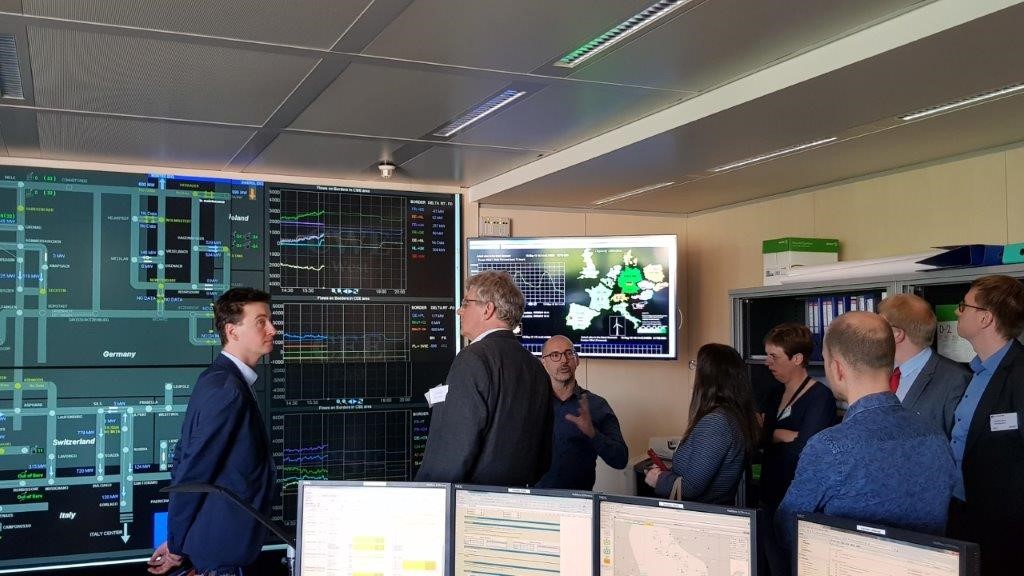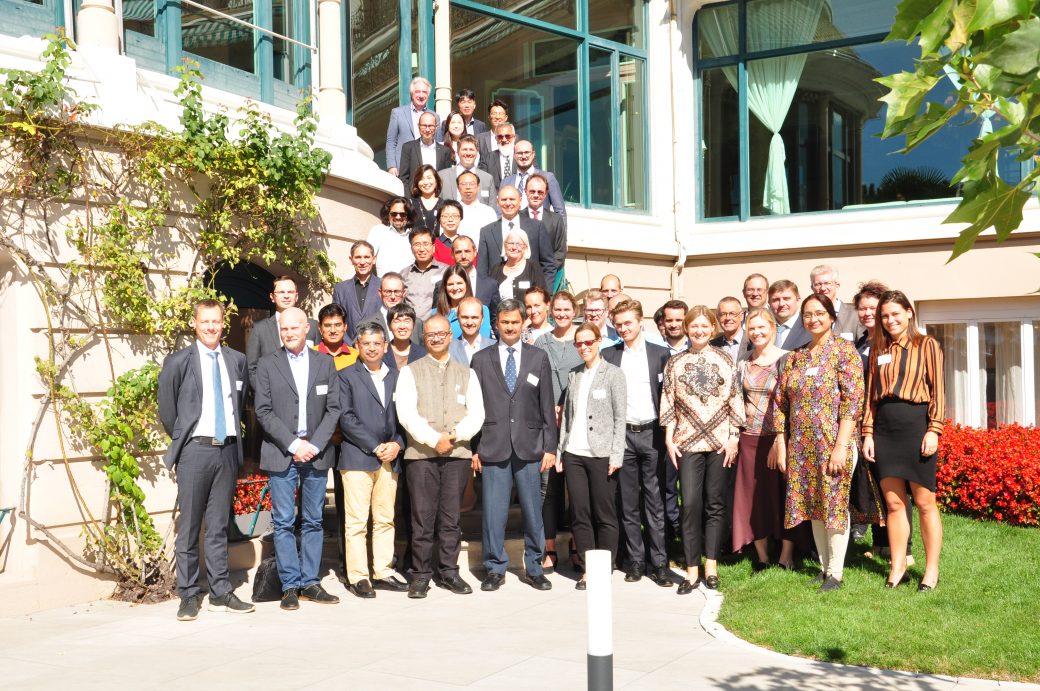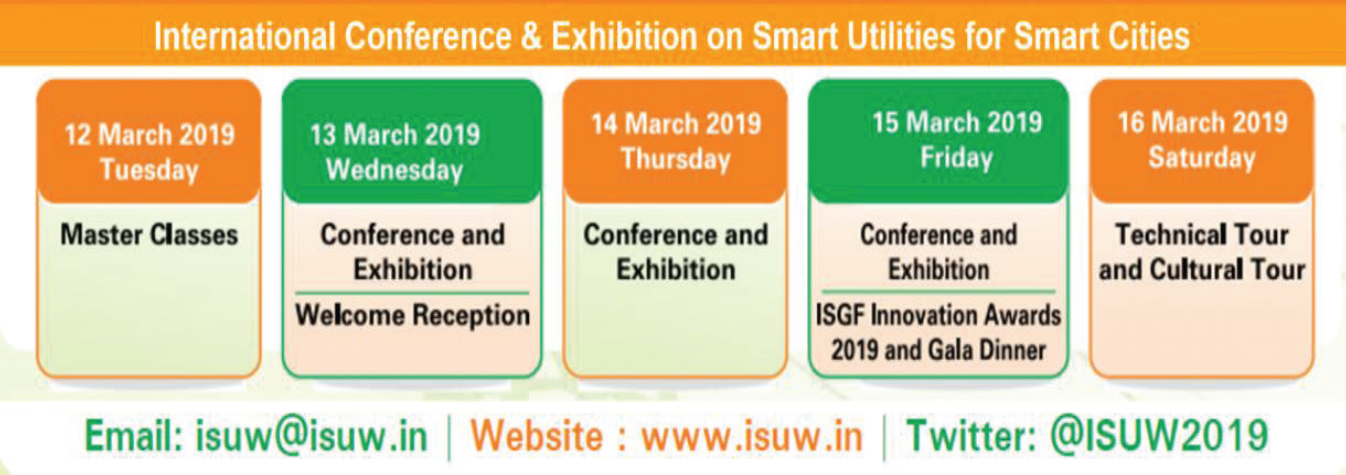Under the framework of both CEM and IEA, ISGAN is an international platform for the development and exchange of knowledge and expertise on smart grids, carried by its member states. This workshop was a good opportunity to strengthen the cooperation between international ISGAN members and speakers and the ENTSO-E and E.DSO participants and moderators. The event offered also a great opportunity to disseminate the results of the ISGAN work to the Belgian smart grid community, get their feed-back on the results and to learn from their experiences.
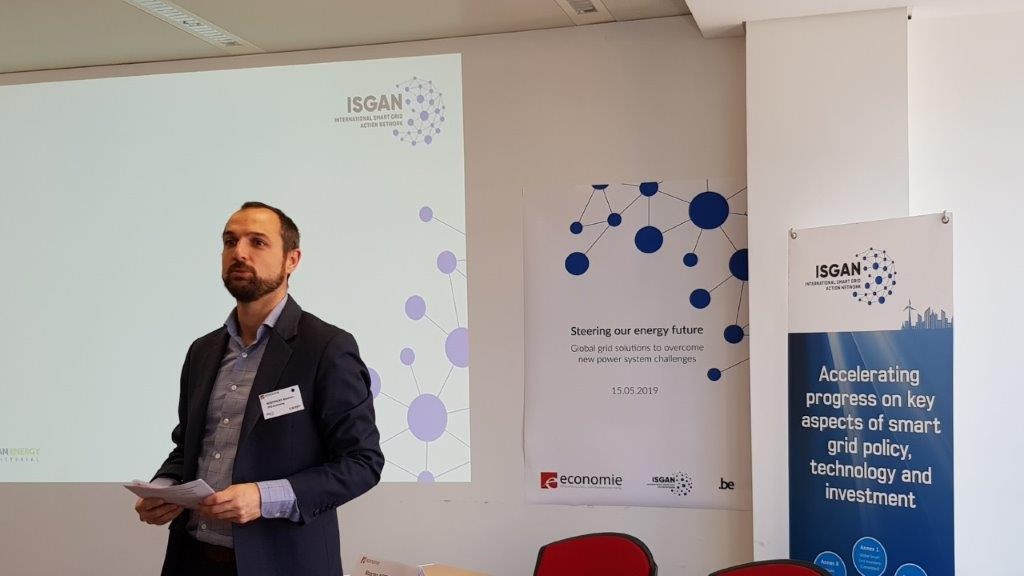
Maarten Noeninckx, FPS Economy Belgium / ISGAN
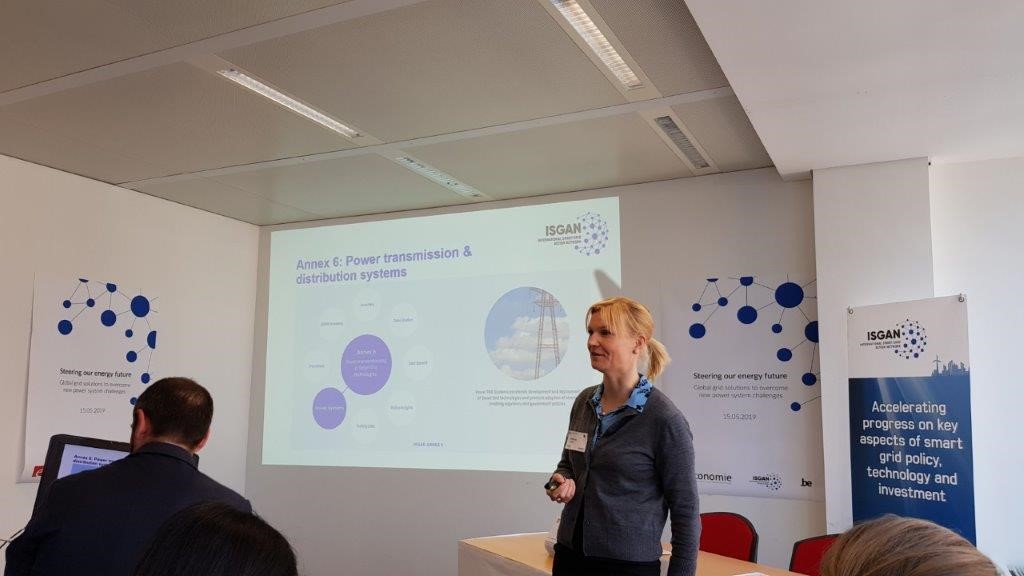
Joni Rossi, RISE Sweden / ISGAN Annex 6
The workshop looked from various angels at recent developments and innovations which increase coordination and control of interconnected systems and markets on the global scale. The topical presentations and lively discussions contributed largely to ISGAN’s main objectives, namely to exchange knowledge and expertise and foster international cooperation in the field of smart grids amongst international organizations, national government, regulators, utilities, manufacturers and research institutes, all of which were well presented at the workshop.
Different representatives from European and international networks such as IEA, IRENA, EC DG Energy and Cigre opened the discussion by linking European policies (i.e. Clean Energy Package) to worldwide sustainability goals such as electricity access and clean air, broadening flexibility needs to all sectors of the energy system and stressing the importance of robust international cooperation and a stable CO2 price. A poll in the audience confirmed that one of the major challenges is the need for power sector investments in order to meet long-term goals and to reach high levels of electrification in buildings, transport and industry.
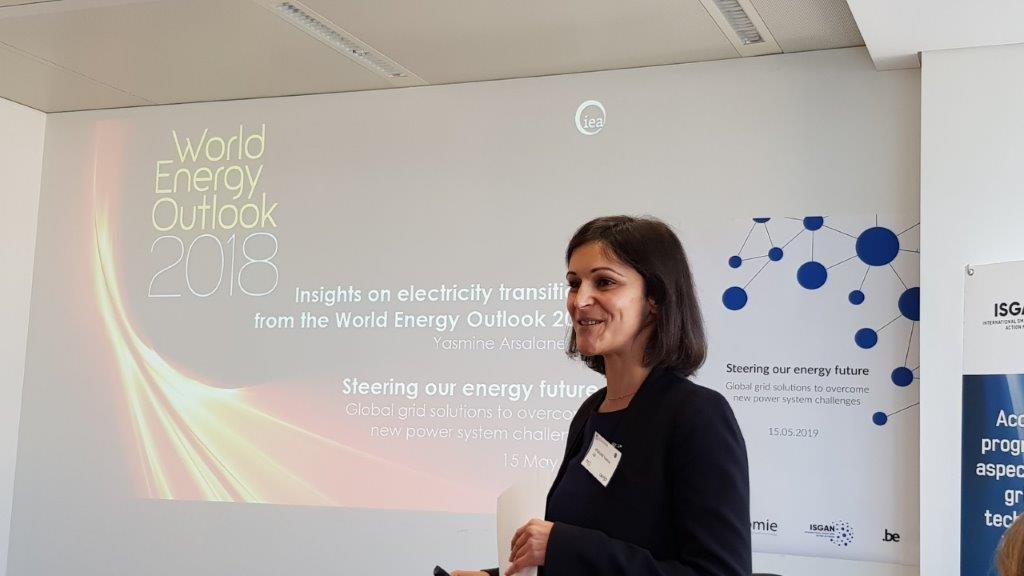
Yasmine Arsalane, IEA

Elaine O’Connell, European Commission

Emanuele Taibi, IRENA
Annex 6, ISGAN’s working group on ‘Power Transmission and Distribution Systems’, focuses on the application of advanced technologies needed for power grids to contribute in the best way to the attainment of clean energy and climate goals. During the interactive workshop, the conclusions of some recent ISGAN activities on power system flexibility, TSO-DSO interaction and a single marketplace for flexibility were disseminated and discussed. Several speakers gave valuable input for the kickoff of a new Annex 6 activity on ‘global versus local power systems’. In an interactive group discussion we tried to critically assess whether different trends (global versus local), that both aim at enable very high penetration of renewable energy sources, are totally independent or whether there are synergies or conflicts of interest between the two.
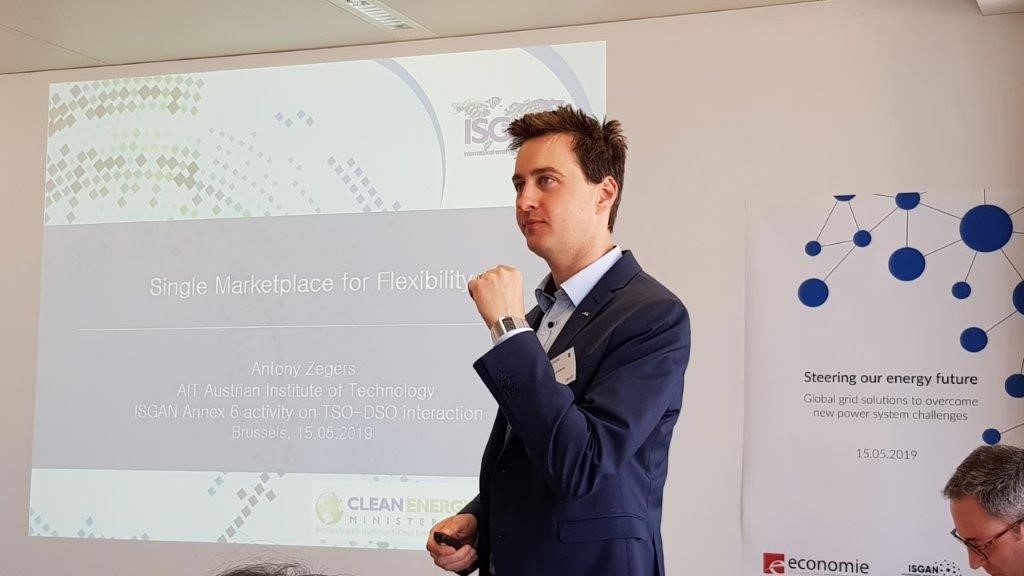
Antony Zegers, AIT Austria / ISGAN Annex 6
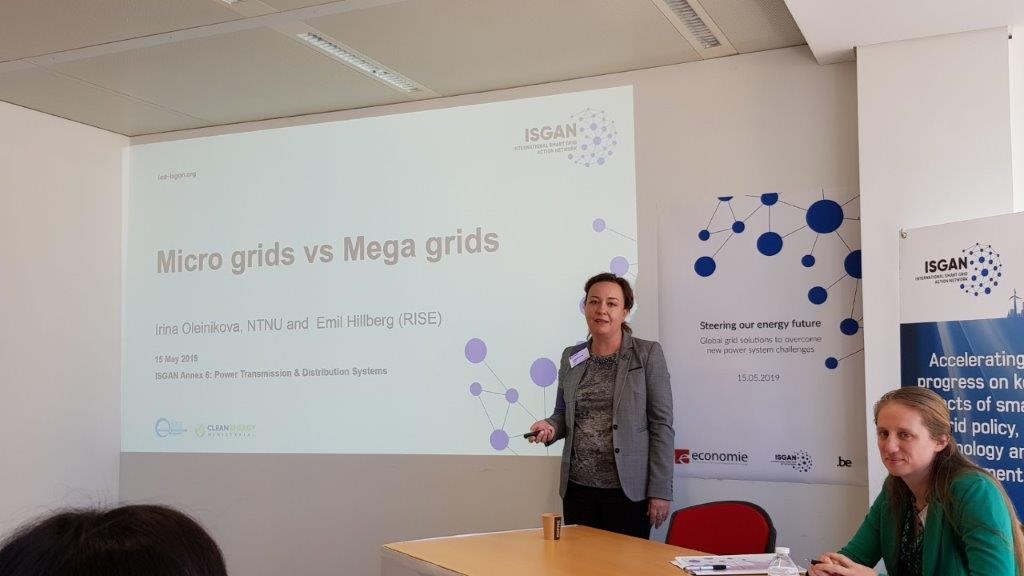
Irina Oleinikova, NTNU Norway / ISGAN Annex 6
The day was concluded by a visit to the control room of the regional security center CORESO, which was also the host of the day. It showed how the increased inter-TSO operational coordination was put in practice.
